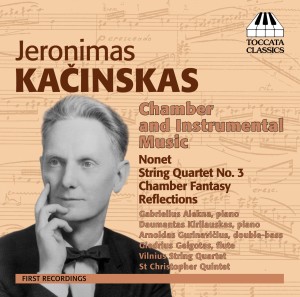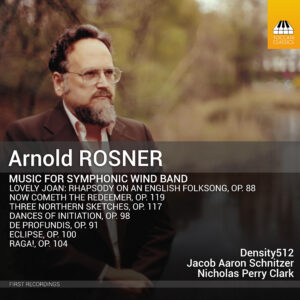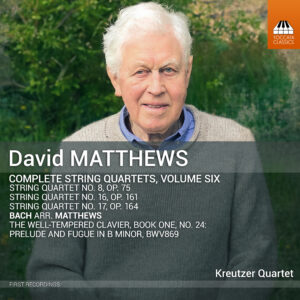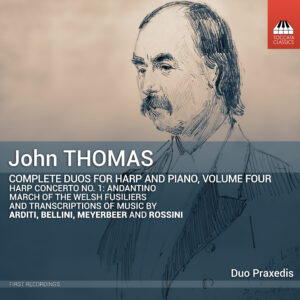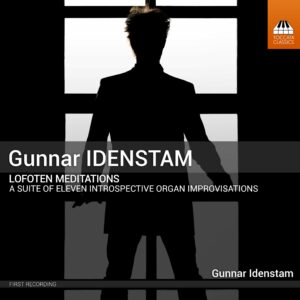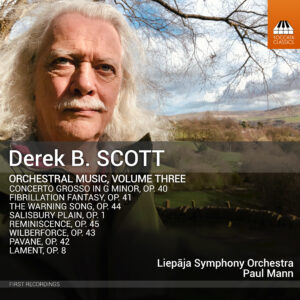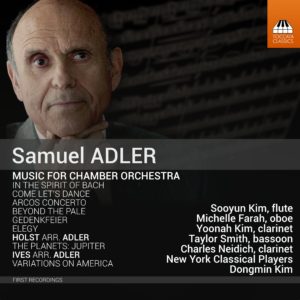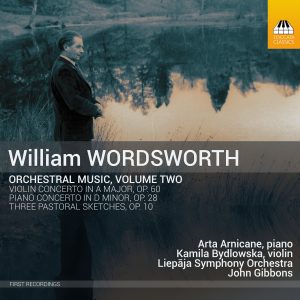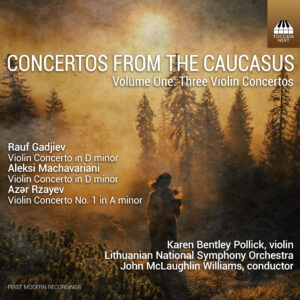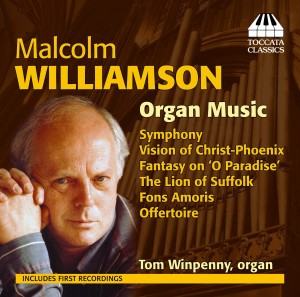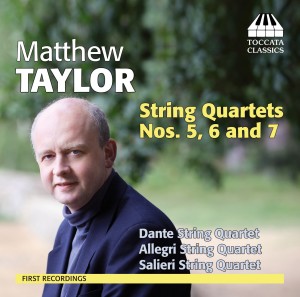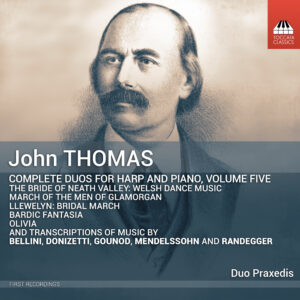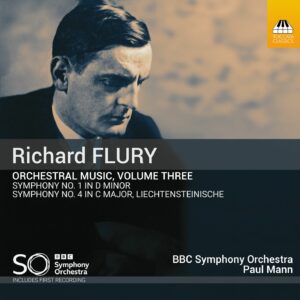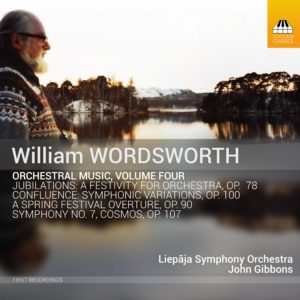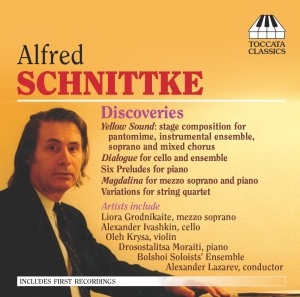Search Results for "Space Wolf: The First Omnibus mp3 torrent" – Page 15
Jeronimas Kačinskas: Chamber and Instrumental Music
The Lithuanian composer Jeronimas Kačinskas (1907-2005) is one of the lost radicals of twentieth-century music. He abandoned traditional syntax in favour of an atonal athematicism, whereby the music is in constant evolution, with freely pulsing rhythms and melodic lines that branch forward like tendrils. His lyrical but tightly woven Nonet was well received in the 1930s, but when Kačinskas fled Lithuania from the approaching Russians in 1944 he had to abandon almost all his scores. Only with the collapse of the Soviet empire could the work be reconstructed — and the composer return home in triumph.
Giedrius Gelgotas, flute
Arnoldas Gurinavičius, double-bass
Vilnius String Quartet, string quartet
St Christopher Quintet, wind quintet
Gabrielius Alekna, piano
Daumantas Kirilauskas, piano
Arnold Rosner: Music for Symphonic Wind Band
Arnold Rosner (1945–2013) was a New Yorker through and through, but his musical language reached across time and culture, clothing the modal harmony and rhythm of pre-Baroque polyphony in rich Romantic colours, thus producing a style that is instantly recognisable and immediately appealing. Having written his Eighth Symphony for symphonic wind band, he took a liking to the medium, composing seven more works for this popular feature of American university life, none of them recorded before now. Their inspiration is eclectic – from ethnic material and natural phenomena to religious stimuli – but Rosner’s unerring balance of dignity and energy is common to all of them and stamps them with a sound that is uniquely his.
Density512
Jacob Aaron Schnitzer, conductor
Nicholas Perry Clark, conductor
David Matthews: Complete String Quartets, Volume Six
The American critic Robert Reilly described the music on Volume One of this cycle of the complete string quartets of David Matthews (b. 1943) as ‘some of the most concentrated, penetrating writing for this medium in the past 30 years or more. It is musical thinking of the highest order and quartet writing in the great tradition of Beethoven, Bartók, Britten, and Tippett’. The three works in this sixth volume of Matthews’ string quartets cover a quarter of a century but share the same basic features, not least a mastery of counterpoint, an impassioned lyricism, a sublimated hint of folksong and occasionally a sly sense of humour, all deployed to touch something essential in the listener. Matthews begins his booklet note with this release by saluting ‘my now nearly 30-year relationship with the Kreutzer Quartet, which has been as invaluable to me as Shostakovich’s with the Beethoven Quartet, or Beethoven’s with the Schuppanzigh Quartet’.
Kreutzer Quartet
John Thomas: Complete Duos for Harp and Piano, Volume Four
Harpist to Queen Victoria, the Welsh composer John Thomas (1826–1913) also wrote prolifically for his own instrument, both for solo harp and for duos of two harps or harp and piano – a combination where the different sounds of the two instruments enhance the clarity of the texture. Thomas’ original works use the elegant Romantic style of his own day, but he often drew on Welsh folksong for his inspiration and also left a generous legacy of transcriptions, especially of operatic favourites. Although some of his music was intended for the Victorian drawing room, other pieces require a virtuoso technique – and all of it has a thoroughly engaging melodic appeal.
Duo Praxedis
Praxedis Hug-Rütti, harp
Praxedis Geneviève Hug, piano
Gunnar Idenstam: Lofoten Meditations
In 2019 the Swedish organist and composer Gunnar Idenstam was commissioned to provide the music to a film, The Vegan Toothbrush, by the Norwegian film-maker Trygve Luktvasslimo, which takes seriously the issue of climate change itself but satirises the quasi-religious intensity of climate activists. Idenstam is one of the few remaining organists who maintain the centuries-old tradition of improvisation at the console, and his extemporisations for the film, all of which are concerned with water, developed into a kind of powerfully atmospheric sea symphony.
Gunnar Idenstam, Allen Quantum Q350 digital organ
Derek B. Scott: Orchestral Music, Volume Three
Derek Scott, born in Birmingham in 1950, has an international reputation as an historian of the British music hall and other forms of light entertainment. But he is an outstanding composer in his own right – a master craftsman and natural tunesmith, who manages to unite good humour, unerring technique and deep feeling in music of immediate appeal. Although the works recorded here represent his most recent harvest of orchestral music, for many of them he revisited material composed earlier in his career, using it as the basis for a series of new scores, some exhibiting a very English sense of whimsy, others concerned with deeper matters – one, indeed, inspired by the war in Ukraine. This album has been released with remarkable speed: it was recorded only on 15–18 May this year.
Liepāja Symphony Orchestra
Paul Mann, conductor
Ingus Novicāns, horn
Līga Baltābola and Jānis Baltābols, violins
Klāvs Jankevics, cello
Gertruda Jerjomenko, harpischord
Samuel Adler: Music for Chamber Orchestra
The music of Samuel Adler – born in Mannheim in 1928 but long since one of the leading figures of American music – has its roots in the Neo-Classical clarity of composers like Copland and Hindemith, who were among his teachers. The works on this album arose from a range of impulses: a Neo-Baroque concerto grosso and a tribute to Bach encase a series of tributes to lost individuals and traditions; and two jeux d’esprit – Ives’ tongue-in-cheek Variations on America and Holst’s ‘Jupiter’ from The Planets – both bring jollity in Adler’s idiomatic arrangements for string orchestra.
Sooyun Kim, flute (Tracks 1–4)
Michelle Farah, oboe (Tracks 1–4)
Yoonah Kim, clarinet (Tracks 1–4)
Taylor Smith, bassoon (Tracks 1–4)
Charles Neidich, clarinet (Track 6)
New York Classical Players
Dongmin Kim, leader and conductor
William WORDSWORTH: Orchestral Music, Volume Two
The music of William Wordsworth (1908–88) – a great-great-grandson of the poet’s brother Christopher – lies downstream from that of Vaughan Williams and Sibelius; like that of his contemporary Edmund Rubbra, Wordsworth’s music unfolds spontaneously, as a natural process. This second volume brings two concertos, both major works – though long forgotten, and contrasted in their approach: the gritty and muscular Piano Concerto is cast in a single, tightly argued span, whereas the lyrical Violin Concerto is expansive and unhurried – and deeply touching. They are complemented by the Three Pastoral Sketches, which grow gently from understated autumnal hues to a dignified and moving climax. All three scores show an extraordinary command of orchestral colour.
Arta Arnicane, piano (Tracks 1-5)
Kamila Bydlowska, violin (Tracks 9-11)
Liepāja Symphony Orchestra
John Gibbons
Richard Flury: A Florentine Tragedy: Opera in One Act
The Swiss composer Richard Flury (1896–1967) felt the fascination for A Florentine Tragedy, Oscar Wilde’s drama of love and violence in Renaissance Italy, that also attracted his near-contemporary Alexander Zemlinsky: they set the same libretto. Flury responded to the text with this dark and swirling one-act verismo opera, sizzling with sexual tension, the vocal lines of the three characters unfolding over an orchestral texture remarkable for its plasticity and kaleidoscopic colour. It is preceded here by a dignified but impassioned operatic scena setting Grillparzer’s dramatic treatment of the suicide of the Greek poetess Sappho.
Julia Sophie Wagner (soprano), Tracks 1-3, 5-11
Long Long (tenor), Tracks 2-11
Daniel Ochoa (baritone), Tracks 2-11
Nuremberg Symphony Orchestra
Paul Mann (conductor)
Concertos from the Caucasus, Volume One: Violin Concertos
In the early years of the twentieth century a first wave of composers in the Caucasus laid down the basis of their national schools by grafting the outlines of western classical music onto local folk traditions. By mid-century a second generation took up the challenge more thoroughly, their compositions confidently handling the large forms of the concert hall, though still drawing on regional idioms. The Soviet orthodoxy of the day expected its composers to abide by the rules, but the three composers heard here – two Azeris and a Georgian, all young men when they wrote the violin concertos on this album – brought something fresh and individual to the task, marrying east and west, form and freedom, tradition and originality.
Karin Bentley Pollick, violin
Lithuanian National Symphony Orchestra
John McLaughlin Williams, conductor
Malcolm Williamson: Organ Music
Malcolm Williamson (1931-2003), Master of the Queen's Music from 1975 until his death, was a gifted pianist and organist as well as a prolific composer. His music, which began to make an impact soon after his arrival in Britain from Australia in 1953, naturally includes a substantial number of works for the organ, among them the monumental Symphony of 1960. His writing for organ is strikingly powerful in its originality and its eclectic mix of styles, ranging from lyrical introspection to dazzling virtuosity.
Tom Winpenny, organ
Matthew Taylor: String Quartets Nos. 5, 6 and 7
Matthew Taylor's sense of musical architecture — extending the symphonic tradition of Sibelius and Nielsen into the modern age — can be felt in his chamber music no less than in his orchestral output. Though his String Quartets Nos. 5, 6 and 7 were written in close succession, they are fundamentally different in design and feeling. Quartet No. 5 adopts a pacifying process as a volatile Allegro unfolds into a spacious fugue before easing into a delicate lullaby. The core of the Sixth Quartet is a Romanza which Taylor wrote for his wife on their wedding. And the Classical clarity of the Seventh Quartet pays tribute to Haydn and Mendelssohn, two composers whom Taylor much admires.
Dante String Quartet, string quartet
Allegri String Quartet, string quartet
Salieri String Quartet, string quartet
John Thomas: Complete Duos for Harp and Piano, Volume Five
The Welshman John Thomas (1826–1913), harpist to Queen Victoria, wrote prolifically for his own instrument, both for solo harp and for duos of two harps or harp and piano – a combination where the different sounds of the two instruments enhance the clarity of the texture. Thomas’ original works use the elegant Romantic style of his own day, but he often drew on Welsh folksong for his inspiration and left a generous legacy of transcriptions, especially of operatic favourites. Although some of his music was intended for the Victorian drawing room, other pieces require a virtuoso technique – and all of it has a thoroughly engaging melodic appeal. This fifth album of his duets for harp and piano ends a series that has seen the revival of music unheard for over a century and a half.
Duo Praxedis
Praxedis Hug-Rütti, harp
Praxedis Geneviève Hug, piano
Richard Flury: Orchestral Music, Volume Three
The First and Fourth Symphonies of the Swiss composer Richard Flury (1896–1967) both have a strong sense of place. They retain a hint of Bruckner but are fluid rather than monumental. The First is lyrical and grandiose in equal measure, perhaps reflecting the grandeurs of the Swiss landscape. The Fourth was inspired by memories of childhood visits to Liechtenstein and spins out tunes and atmosphere with the profligacy of a Hollywood film score. The existing material for both works was full of errors; this recording is the first to return to Flury’s manuscripts and expunge the wrong notes.
BBC Symphony Orchestra
Paul Mann, conductor
William Wordsworth: Orchestral Music, Volume Four
The music of William Wordsworth (1908–88) – a great-great-grandson of the poet’s brother Christopher – lies downstream from that of Vaughan Williams and Sibelius; like that of his contemporary Edmund Rubbra, Wordsworth’s music unfolds spontaneously, as a natural process. This fourth volume of his orchestral works presents four works which are all symphonic studies in essence, each remarkable for its unassertive strength of purpose and its suggestion of a sense of scale beyond its actual dimensions – perhaps in part a reflection of the majesty of the Scottish Highlands where he made his home, and of the quiet resolve of his own character.
Liepāja Symphony Orchestra
John Gibbons, conductor
Līga Baltābola, violin (Track 10)
Alfred Schnittke: Discoveries
The output of Alfred Schnittke (1934-98) has been documented in recordings more thoroughly than that of any other Russian composer since Shostakovich. But there are a number of works which have not yet been released on CD, and four of the five here are not only first recordings; they also document Schnittke's stylistic evolution over more than four decades of creative activity, moving from the relatively traditional Preludes, via the serial Dialogue and the experimental Yellow Sound to the elliptical Variations, one of his last works, written in the teeth of enormous physical difficulty.
Drosostalitsa Moraiti, piano
Alexander Ivashkin, cello
Ensemble Pentaèdre de Montréal, ensemble
Jeremy Bell, conductor
Nelly Lee, soprano
Bolshoi Soloists’ Ensemble, ensemble
Alexander Lazarev, conductor
Liora Grodnikaite, mezzo soprano
Oleh Krysa, violin
Natalia Lomeiko, violin
Konstantin Boyarsky, viola
Stay In the Know
JOIN THE TOCCATA NEWSLETTER
"*" indicates required fields
By visiting our site, you agree to our privacy policy regarding cookies, tracking statistics, etc.
